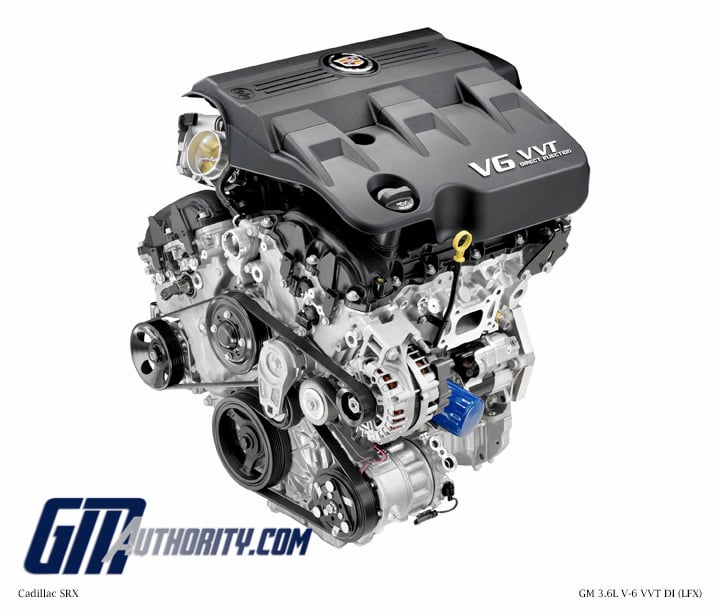Decoding the Chevy 3.6L V6: Durability Deep Dive
The hum of a powerful engine, the smooth acceleration, the reassuring purr – these are the sensations drivers crave. But beneath the hood lies a complex machine, and its longevity is paramount. When it comes to the Chevrolet 3.6L V6, its reputation for dependability is a key factor for many potential buyers. So, how reliable is this ubiquitous engine?
The Chevrolet 3.6L V6, often referred to as the High Feature V6 or HFV6, powers a diverse range of vehicles from sedans and SUVs to crossovers and trucks. This widespread use has naturally led to questions regarding its long-term performance and durability. Understanding the nuances of this engine's track record is essential for informed car ownership.
Delving into the history of the 3.6L V6 reveals its evolution and improvements over the years. First introduced in the 2004 Cadillac CTS, the engine has undergone several revisions and refinements, impacting its overall performance and dependability. Understanding this evolutionary process helps contextualize current discussions about the engine's strengths and weaknesses.
The importance of the 3.6L V6's reliability cannot be overstated. For many Chevrolet owners, their vehicles are essential for daily commutes, family trips, and more. A dependable engine translates to peace of mind, knowing that their vehicle will start every morning and perform consistently. Downtime due to engine troubles can disrupt lives and incur unexpected expenses.
While generally considered a reliable engine, the 3.6L V6 has faced certain recurring issues. These range from timing chain wear and water pump failures to occasional issues with the direct injection system. Acknowledging these potential problems is not meant to deter potential buyers but rather to equip them with the knowledge necessary for proactive maintenance and informed decision-making.
The 3.6L V6 utilizes direct injection technology, which delivers fuel directly into the combustion chamber. This contributes to improved fuel efficiency and power output. However, it can also lead to carbon buildup on intake valves in some cases, which can affect performance over time.
One benefit of the 3.6L V6 is its relatively good fuel economy for its size and power output. For example, some Chevrolet Traverse models equipped with the engine achieve over 25 miles per gallon on the highway.
Another advantage is the engine’s smooth and refined operation. The V6 architecture and advanced engineering contribute to a quiet and comfortable driving experience.
Furthermore, the 3.6L V6 offers ample power for most driving situations, providing brisk acceleration and confident passing maneuvers. This makes it suitable for towing and hauling within its specified limits.
Advantages and Disadvantages of the Chevrolet 3.6L V6
| Advantages | Disadvantages |
|---|---|
| Good Fuel Economy | Potential Timing Chain Issues |
| Smooth and Refined Operation | Occasional Water Pump Failures |
| Ample Power Output | Possible Direct Injection Concerns |
One best practice for maintaining the 3.6L V6 is adhering to the recommended oil change intervals. Using high-quality oil and filters can help prevent premature wear and extend engine life.
Regular inspections of the cooling system, including the water pump and hoses, are essential. Addressing leaks or other issues promptly can prevent more serious problems down the road.
Frequently Asked Questions:
What is the typical lifespan of a 3.6L V6? With proper maintenance, the engine can last for 200,000 miles or more.
What are the signs of a failing timing chain? Common symptoms include a rattling noise from the engine, rough idling, and difficulty starting.
How often should the water pump be replaced? It's generally recommended to replace the water pump every 60,000 to 90,000 miles as a preventative measure.
What kind of oil is recommended for the 3.6L V6? Consult your owner's manual for the specific oil viscosity and specifications recommended by Chevrolet.
How can I improve the fuel economy of my 3.6L V6? Ensuring proper tire inflation, avoiding aggressive driving, and keeping the vehicle properly maintained can contribute to better fuel efficiency.
What are the common problems with the 3.6L V6? Potential issues include timing chain wear, water pump failures, and occasional direct injection concerns.
Is the 3.6L V6 a reliable engine? While it has its potential weaknesses, the 3.6L V6 is generally considered a reliable engine with proper maintenance.
Where can I find more information about the Chevrolet 3.6L V6? Online forums, automotive websites, and owner's manuals provide valuable resources.
Tips and tricks for maintaining the Chevrolet 3.6L V6 include using quality fuel, avoiding short trips that don't allow the engine to reach operating temperature, and addressing any unusual noises or performance issues promptly.
In conclusion, the Chevrolet 3.6L V6 offers a compelling blend of power, efficiency, and generally good reliability. Understanding its strengths, acknowledging its potential weaknesses, and adhering to proper maintenance practices are crucial for maximizing its lifespan and enjoying a trouble-free ownership experience. While no engine is completely immune to issues, the 3.6L V6, with its widespread use and ongoing refinements, continues to be a popular choice for a variety of Chevrolet vehicles. By staying informed and proactive, owners can ensure that their 3.6L V6 delivers dependable performance for years to come. Take the time to research specific model years and their associated issues, consult owner forums for real-world experiences, and prioritize preventative maintenance. This proactive approach will not only extend the life of your engine but also contribute to a safer and more enjoyable driving experience. Don't just drive; understand what drives you.
Mastering fc 24 player career skill points
Unlocking mason city menards a guide to store hours and more
Decoding the google colors a deep dive into its iconic palette














